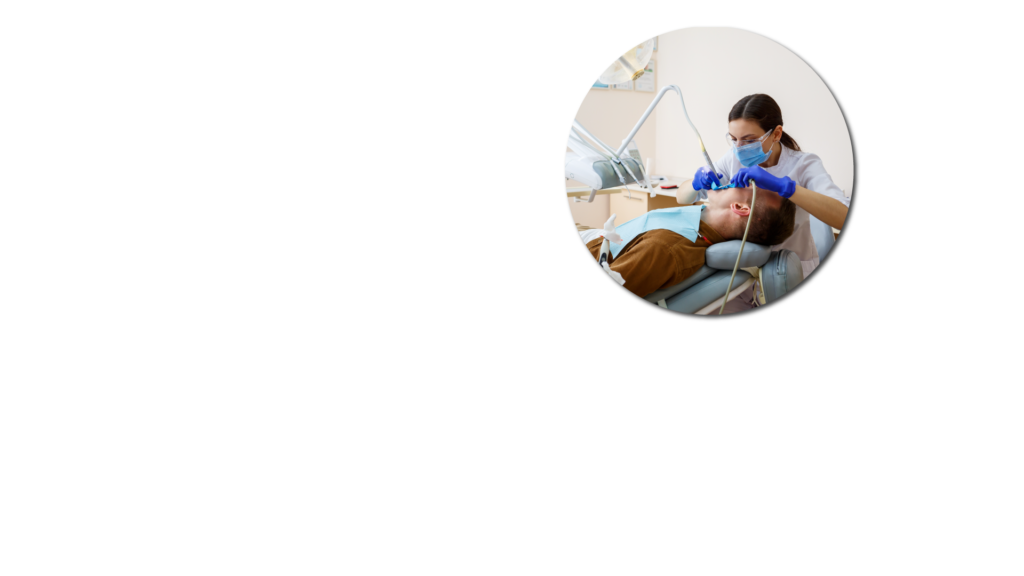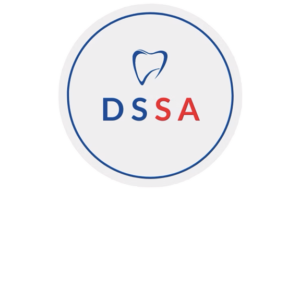Dental professionals are up to three times more likely to experience burnout than other professionals[i] and suffer from very high levels of stress.[ii] Their personal as well as professional lives can suffer as a result. A 2016 study on burnout in the profession found that 46.80% of respondents felt worn out at the end of the working day, and 47.83% had less energy and less time for family and friends.[iii] A more recent survey showed that more than half of dentists (53%) and 37% of dental nurses feel that they did not have a good work-life balance.[iv]
A well-balanced life may mean different things to different people, but broadly, it represents the idea that there is minimal conflict between roles inside and outside of work, and that individuals can experience a high level of engagement in both without negative consequences.[v]
Survey[vi] after survey[vii] has revealed that since the pandemic, more of us tend to be focused on work-life balance rather than financial rewards when seeking new employment. Individuals want to be valued and respected professionals, as well as individuals with a private life. [viii]
When work-life balance is off, everybody loses. Not only do dental professionals suffer when work is out of balance with life; the quality of their work suffers. Strong networks outside of work leads to increased job satisfaction, and a greater sense of commitment to work and patients.[ix] [x] Working in a way that enables more non-work-related activity vastly increases engagement at work.[xi]
Where the balance is right, professionals are 2.5 times more likely to put in extra effort.[xii] Improved effort contributes to greater career advancement and professional success, which in turn tends to make people feel more satisfied in their personal lives.[xiii] Patients benefit from this too. When dental professionals have strong social and support networks outside of work, improved morale is strongly linked to positive outcomes for patients.[xiv]
Work that precludes a satisfying personal life has negative consequences for all team members, but many people with added caring responsibility, for family members or others, find themselves struggling to keep their heads above water. Individuals may well find themselves worrying about work when they’re with those they care for, and worrying about the responsibilities at home while they’re at work. It may feel impossible to perform well in either situation, and that there is little respite. Work–family conflict can have a serious impact on mental health and well-being, as well as physical health.[xv]
The physical and mental impacts of overworking
Cardiovascular disease (CVD) – chiefly heart disease and stroke – is one of the leading causes of premature death in the UK.[xvi] Multiple studies have shown CVD to be strongly linked to a number of unhealthy work conditions, including a poor work-life balance and long working hours.[xvii] A study conducted by UCL of more than 10,000 participants stated that professionals who worked three or more hours longer than required had a 60% higher risk of heart-related problems than those who didn’t work overtime.[xviii]
Several studies have also associated long working hours with depression and anxiety. Sleep can be affected, which can result in a number of problems, including mood disorders.[xix] During the pandemic, female dental professionals were revealed to be more affected by the negative mental health effects of work-life imbalance than their male colleagues.[xx] Due to the additional caring responsibilities that tend to fall to them, women in dentistry are more affected by emotional exhaustion, work–family conflict and resultant symptoms of stress.[xxi] [xxii]
Striking a better balance
It’s important to speak up when things start to feel out of hand, and if you manage a team, there are lots of things you can do to help improve their wellbeing. Many mental health charities, as well as the Health and Safety Executive (HSE) offer free resources and guidance on managing personal and team stress in the workplace, as well as recognising the signs.[xxiii] [xxiv]
Practice managers can really help their teams by encouraging a culture of openness, and regularly checking in on pressures that might be affecting the team’s workload. Implementing strong systems, policies and procedures, and supporting team members to set boundaries so work doesn’t creep into their home lives can make all the difference. And the time-consuming practicalities of running a busy dental practice can increasingly be supported by digital systems.
The dental practice management software (DPMS) from AeronaDental is a system designed to take the stress out of the day-to-day operation of dental practices. Online consultation tools – including integrated video consultation – allow team members to work more flexibly. The system is cloud-based, and offers full integration with notes, forms, billing information, communication and survey tools. Business and finance tools are also fully integrated, so practice managers and business owners can analyse performance to plan for improved business resilience.
With the right encouragement and support, it is possible for dental professionals to achieve a healthier work-life balance. Support by management and co-workers alongside clear policies and effective systems and procedures, can have a positive impact on the individual’s life both inside and outside of work. As well as contributing to a more engaged dental team, improved staff retention and increased profits, it just makes everybody happier, and what’s not to like about that?
For more information, please visit aerona.com
[i] Moro JDS, Soares JP, Massignan C, Oliveira LB, Ribeiro DM, Cardoso M, Canto GL, Bolan M. BURNOUT SYNDROME AMONG DENTISTS: A SYSTEMATIC REVIEW AND META-ANALYSIS. J Evid Based Dent Pract. 2022 Sep;22(3):101724. doi: 10.1016/j.jebdp.2022.101724. Epub 2022 Apr 2. PMID: 36162888.
[ii] More than half of dentists say stress is affecting their practice. Br Dent J 226, 7 (2019). https://doi.org/10.1038/sj.bdj.2019.18
[iii] Kulkarni S, Dagli N, Duraiswamy P, Desai H, Vyas H, Baroudi K. Stress and professional burnout among newly graduated dentists. J Int Soc Prev Community Dent. 2016 Nov-Dec;6(6):535-541. doi: 10.4103/2231-0762.195509. PMID: 28032045; PMCID: PMC5184387.
[iv] https://dentistry.co.uk/2023/06/29/how-have-stress-levels-changed-in-the-last-two-years/
[v] Sirgy MJ, Lee DJ. Work-life balance: An integrative review. Appl Res Qual Life. 2018Mar;13(1):229–254.
[vi] Morgan K. What does work-life balance mean in a changed work world? BBC.com. February 2023. Available at: https://www.bbc.com/worklife/article/20230227-what-does-work-life-balance-mean-in-a-changed-work-world. Accessed April 2024.
[vii] Mayne M. Is work-life balance becoming more important than pay? Peoplemanagement.com. January 2023. Available at: https://www.peoplemanagement.co.uk/article/1810688/work-life-balance-becoming-important-pay. Accessed April 2024.
[viii] Žnidaršič J, Bernik M. Impact of work-family balance results on employee work engagement within the organization: The case of Slovenia. PLoS One. 2021 Jan 20;16(1):e0245078. doi: 10.1371/journal.pone.0245078. PMID: 33471813; PMCID: PMC7816978.
[ix] Pai, Swathi & Patil, Dr & Kamath, Rajashree & Mahendra, Mansi & Singhal, Deepak & Bhat, Vishaal. (2021). Work-life balance amongst dental professionals during the COVID-19 pandemic—A structural equation modelling approach. PLOS ONE. 16. e0256663. 10.1371/journal.pone.0256663.
[x] Gallagher JE, Colonio-Salazar FB, White S. Supporting dentists’ health and wellbeing – a qualitative study of coping strategies in ‘normal times’. Br Dent J. 2021 Jul 20:1–9. doi: 10.1038/s41415-021-3205-7. Epub ahead of print. PMID: 34285386; PMCID: PMC8294212.
[xi] Sirgy MJ, Lee DJ. Work-life balance: An integrative review. Appl Res Qual Life. 2018Mar;13(1):229–254.
[xii] Wedgewood J. The Importance of Work-Life Balance. September 2022. Available at: https://thehappinessindex.com/blog/importance-work-life-balance/ Accessed April 2024
[xiii] Sirgy MJ, Lee DJ. Work-life balance: An integrative review. Appl Res Qual Life. 2018Mar;13(1):229–254.
[xiv] Gallagher JE, Colonio-Salazar FB, White S. Supporting dentists’ health and wellbeing – a qualitative study of coping strategies in ‘normal times’. Br Dent J. 2021 Jul 20:1–9. doi: 10.1038/s41415-021-3205-7. Epub ahead of print. PMID: 34285386; PMCID: PMC8294212.
[xv] Obrenovic B, Jianguo D, Khudaykulov A, Khan MAS. Work-Family Conflict Impact on Psychological Safety and Psychological Well-Being: A Job Performance Model. Front Psychol. 2020 Mar 31;11:475. doi: 10.3389/fpsyg.2020.00475. PMID: 32296367; PMCID: PMC7137557.
[xvi] UK Factsheet. British Heart Foundation. January 2024. Available at: https://www.bhf.org.uk/-/media/files/for-professionals/research/heart-statistics/bhf-cvd-statistics-uk-factsheet.pdf Accessed April 2024.
[xvii] The National Institute for Occupational Safety and Health (NIOSH). Cardiovascular Disease and Work. Centers for Disease Control and Prevention. January 2024. Available at: https://www.cdc.gov/niosh/topics/heartdisease/default.html#:~:text=Work%2Drelated%20CVD%20Risk%20Factors&text=Long%20working%20hours%20(55%20hours%20or%20more%20per%20week)&text=Working%20nights%2C%20rotating%20shifts%2C%20or%20other%20non%2Dstandard%20shifts&text=High%20job%20demand&text=Low%20job%20control Accessed April 2024
[xviii] Wedgewood J. The Importance of Work-Life Balance. September 2022. Available at: https://thehappinessindex.com/blog/importance-work-life-balance/ Accessed April 2024
[xix] Wong K, Chan AHS, Ngan SC. The Effect of Long Working Hours and Overtime on Occupational Health: A Meta-Analysis of Evidence from 1998 to 2018. Int J Environ Res Public Health. 2019 Jun 13;16(12):2102. doi: 10.3390/ijerph16122102. PMID: 31200573; PMCID: PMC6617405.
[xx] Pai, Swathi & Patil, Dr & Kamath, Rajashree & Mahendra, Mansi & Singhal, Deepak & Bhat, Vishaal. (2021). Work-life balance amongst dental professionals during the COVID-19 pandemic—A structural equation modelling approach. PLOS ONE. 16. e0256663. 10.1371/journal.pone.0256663.
[xxi] Kulkarni S, Dagli N, Duraiswamy P, Desai H, Vyas H, Baroudi K. Stress and professional burnout among newly graduated dentists. J Int Soc Prev Community Dent. 2016 Nov-Dec;6(6):535-541. doi: 10.4103/2231-0762.195509. PMID: 28032045; PMCID: PMC5184387.
[xxii] Obrenovic B, Jianguo D, Khudaykulov A, Khan MAS. Work-Family Conflict Impact on Psychological Safety and Psychological Well-Being: A Job Performance Model. Front Psychol. 2020 Mar 31;11:475. doi: 10.3389/fpsyg.2020.00475. PMID: 32296367; PMCID: PMC7137557.
[xxiii] How to be mentally healthy at work. Mind.org.uk. December 2020. Available at: https://www.mind.org.uk/information-support/tips-for-everyday-living/how-to-be-mentally-healthy-at-work/work-and-stress/. Accessed April 2024
xxiv] Stress and mental health at work. Tools and Templates. HSE.gov.uk. Available at: https://www.hse.gov.uk/stress/standards/downloads.htm Accessed April 2024.






